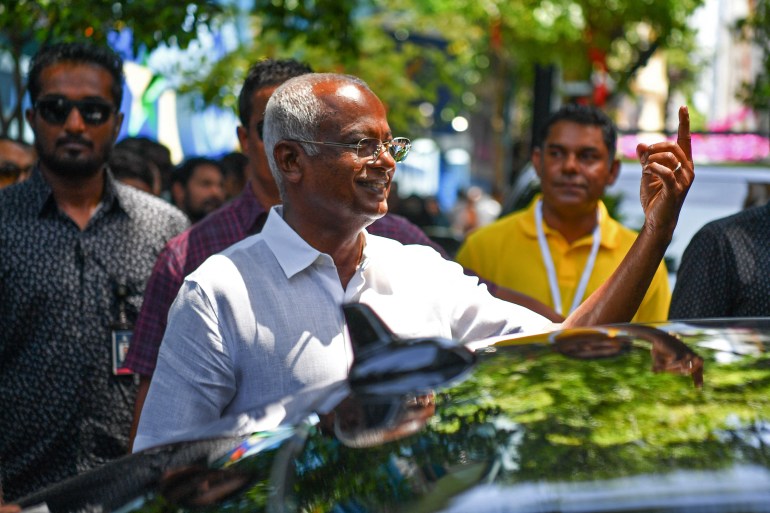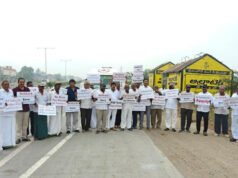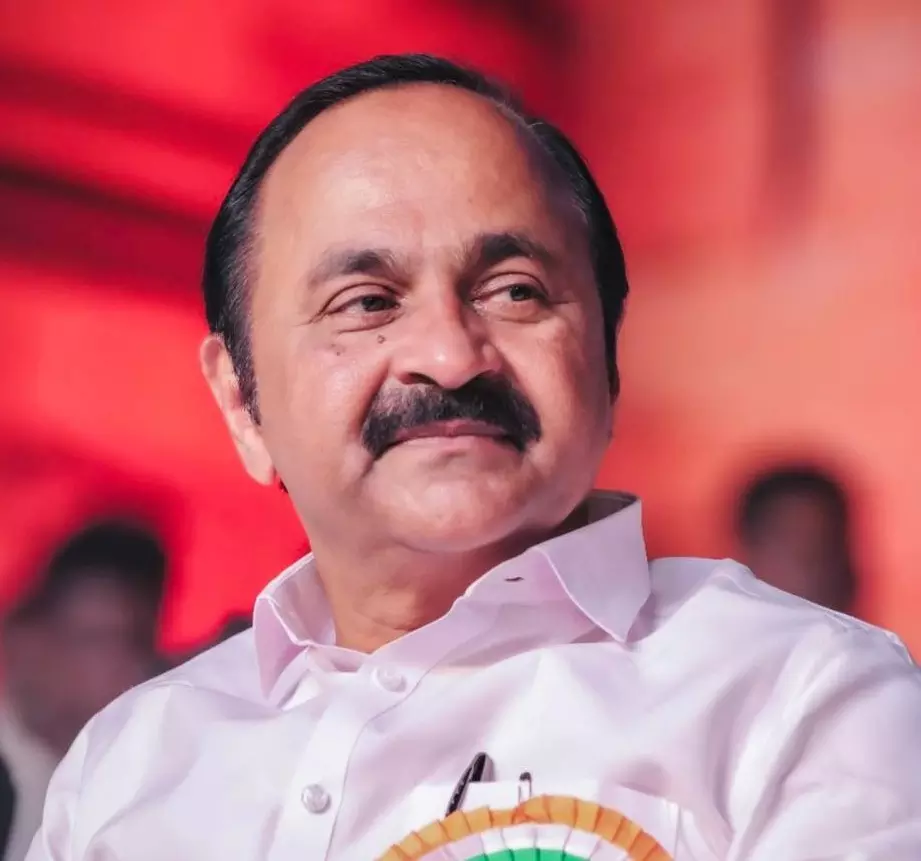Opposition candidate takes surprise lead over President Ibrahim Mohamed Solih in election closely watched by India and China.
The Maldives appears headed for a run-off vote, after the opposition candidate took a surprise lead over President Ibrahim Mohamed Solih, but fell short of an outright majority in a hotly contested presidential election.
The vote on Saturday is being closely watched by India and China, both of whom are vying for influence in the Indian Ocean tourist destination.
With nearly all ballots counted, preliminary results showed the mayor of the capital, Male, Mohamed Muizzu winning 46 percent of the vote, while Solih had 39 percent.
Neither cleared the 50 percent threshold required to avoid a second round.
Muizzu, 45, contested the election promising to limit India’s presence in the Maldives, including by expelling a small group of Indian military personnel stationed in the archipelago. His Progressive Party of the Maldives (PPM)-led coalition had drawn the Maldives closer toChina while in power from 2013-2018, signing onto Beijing’s Belt and Road Initiative and obtaining millions of dollars in loans to fund key infrastructure projects.
Solih, 61, who won the last election in 2018 in a landslide amid widespread public outrage over corruption and rights abuses under PPM, returned the Maldives firmly to India’s orbit. He championed an “India-first” policy and secured similar amounts of funding from New Delhi to scale up infrastructure, including building housing and bridges in the Male region.
Polls ahead of Saturday’s vote consistently showed Solih leading the crowded field of eight candidates, but infighting within his Maldivian Democratic Party (MDP), a lower than expected voter turnout and disenchantment with his failure to tackle graft appears to have hurt the president.
The run-off between Muizzu and Solih is expected on September 30.
“We are very happy today. The Maldivian people have come out, in the nationalist spirit, and shown a great example, despite government pressure and harassment,” Muizzu told reporters following his triumph.
“We are very encouraged… We want to secure our independence, ensure development and fix the economy. That’s what we will be focusing over the next three weeks.”
Solih told reporters he was preparing for a second round.
That included seeking alliances with candidates who had come in second and third.
“I believe PPM will try to do so [seek to form coalitions]. We will do the same. We will do everything we can,” the president told reporters in brief comments.
Coming in at third with 7 percent of the vote was Ilyas Labeeb, formerly a legislator with Solih’s Maldivian Democratic Party (MDP). Labeeb is the candidate of The Democrats, a party founded by former President Mohamed Nasheed, who fell out with Solih after losing a bitterly contested presidential primary earlier this year.
“Nasheed looks like the biggest winner in today’s outcome, elevating himself to the status of kingmaker” said Ahmed Shaheed, a former Maldives foreign minister and professor of international human rights law at the University of Essex in the United Kingdom.
“He is likely to back Solih, subject to being able to get a pledge on a referendum on a parliamentary model of governance and some policy and personnel changes in government and the party. His pro-India stance will also be a factor in which side he backs,” Shaheed said.
“However, the decisive factor in the runoff will be mobilisation of those who did not vote today.”
The elections commission said some 75 percent of the 282,395 people eligible to vote in Saturday’s poll turned out to cast their ballots. The figure is the lowest turnout in a presidential election in Maldivian history.
“The lower turnout compared to previous elections is striking,” said Azim Zahir, a lecturer and research fellow in international relations and politics at the University of Western Australia in Perth.
“Preliminary reports suggest a 75 percent voter turnout, while previous elections has seen figures above 85 percent,” Zahir said. This could indicate “significant youth disillusionment with incumbent parties,” he added.
Some 27,000 people were eligible to vote for the first time in Saturday’s election.
In the lead up to the ballot, many voters who turned out en masse to hand Solih the top job the last time said they have been dissatisfied with the president’s failure to ensure justice for a spate of al-Qaeda linked killings under his predecessor, as well as address the Maldives’ biggest ever corruption scandalin which tens of millions of dollars were stolen from state coffers.
“The low turnout can be attributed to one thing only,” Ibrahim Ismail, a former legislator wrote on the social media platform X.
“Maldivians are tired, disillusioned and feel hopeless. For 15 years, they have responded with spirit, only to be let down. Again. And again.”







